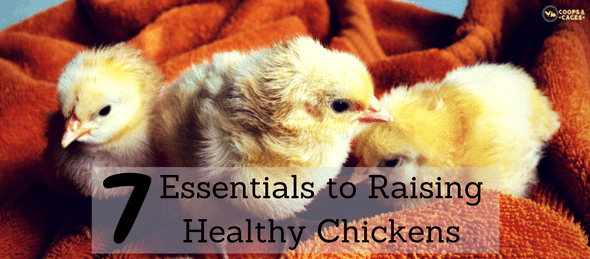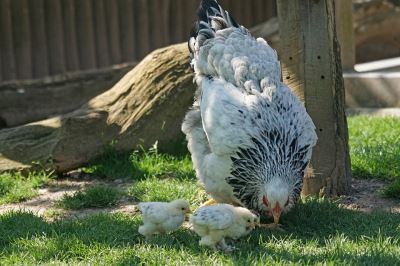Chickens
7 Essentials to Raising Healthy Chickens
Whether you decide to get day-old chicks from the store or hatch your own in the yard, it is important that you know how to grow them into mature and healthy chickens. After all, it’ll be you who will first hand reap the perks.
When starting, you can’t just go and buy a chicken coop in the city and put all your chicks in there. Take note that in the life of these animals, the first two months are the most crucial because during those times, rapid growth becomes noticeable. Therefore, it only makes sense why you as the owner and keeper must never take for granted your flock’s well-being.
For you to be able to raise healthy birds, we suggest you have these essentials in handy:
1. Water
For us humans, water is life. Without it, we won’t survive. But did you know that water is equally important to our chooks, too?
If you have already brought in some chicks at home, be sure you give them access to water all times. That way, they’ll know that they have a place to dip their beaks whenever they feel hot or hydrate themselves when they are thirsty.
Experts suggest that a 1-quart dispenser will be enough for four chicks. However, as they mature, you need to refill the water twice a day or at least change the waterer to something larger.
2. Source of Heat
To stay healthy, chicks must be kept warm. So as much as possible, secure a climate thermometer to track the temperature and install a heat lamp in the chicken coop. Ideally, both must be positioned at least 5 to 6 inches above the head of the chooks.
As your flock grows taller, raise the lamp higher. That way, you won’t be exposing them to direct heat.
3. Regular Inspections
Since chickens thrive well if their environment keeps up with them, it would be wise if you inspect their surroundings every now and them. You must double check whether the lamp is still providing sufficient heat or not. Also, you have to inspect whether each chick gets his own fair share of the feed.
In two weeks, chicks begin to roost. During that time, you must also check on them whether they are already practicing their balance on the perch. If you think there’s something wrong, you must see the vet right away.
4. Chicken Feed
While there are so many commercial feeds available today, you must only feed your chicks with crumble or mash within their first 2 to 3 months. You should not give them pullets or any other feeds for layers. Those feeds may contain significant amounts of calcium that may only cause damage to the kidneys of the younger flock.
If you are uncertain about which feed suits your flock best, consult the vet. He should be able to give you advice as to which specific brands or chicken foods you can offer your chicks.
5. Safety
Of course, the safety of your flock should be your number one priority. Do not just put them in a box or in the garage. Do not even think of raising them in the basement. It would be best if you secure them in a chicken coop to keep them protected against predators and cold drafts.
In addition, you must also keep the children away from them. Instruct them not to play with the birds and remind them to shut the coop door when they leave.
6. Time to Roam Around Freely
You must not lock your chickens in their respective chicken coops all the time. They too need to walk around and have a taste of freedom. Let them free in the morning so that they can exercise and flap their wings.
Also, give time to let them be familiar with your touch. As soon as they become accustomed to you, you’ll have the chance to check on their physical state.
7. Smooth Home Transition
As a responsible owner, you must be wary that sudden changes in the environment can affect your chickens. Normally, a chook becomes accustomed to its new home in two weeks. So it would be better to transition slowly by putting them in an outdoor cage at least one hour per day.
In the succeeding days, you can always increase your hours. By the time they’ve completely matured, they would be ready to face the real world.
Raising chickens at home may mean a lot of work. But the good news is that if you have already complied with all the items listed above, the difficult part is over.
Bonus. If you are planning to raise chickens to have fresh eggs in the morning, feel free to download a copy of the eBook below. It should give you insights about everything related to egg-laying.









